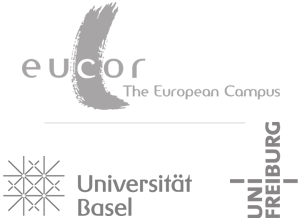Lunch Lecture on Unhealthy Habits: Unlearning Methodological Divisions
| Date | Thursday, 23rd November 2017 |
| Location |
veranstalter: Prof. Nancy Campbell
ansprechpartner: Lena Walter
email:
web: https://www.frias.uni-freiburg.de/de/veranstaltungen/lunch-lectures
institution: HPSL
language: Englisch
location institution: Freiburg
date_raw: 23.11. 2017, 12:15-13:00
date_sort: 23.11.2017, 00:00:00
Mit den Lunch Lectures startete das FRIAS im Sommersemester 2014 eine neue Veranstaltungsreihe. Donnerstags (wöchentlich/2-wöchentlich) zwischen 12:15 und 13:00 im HS 1015 des KG I geben FRIAS Fellows einen Einblick in die Arbeit an ihren Forschungsprojekten, präsentieren aktuelle Ergebnisse und stellen sie vor einem breiten Publikum zur Diskussion.
FRIAS LUNCH LECTURES 2017/18:
QUANTITATIVE VS. QUALITATIVE METHODS ACROSS SCIENCES
Quantitative vs. qualitative methods across sciences: mutual reinforcement, (un)happy co-existence, or source of schisms?
At a time when in most sciences (including the humanities and social sciences) quantitative methods have come to play a central role, it should be explored which role qualitative methods (still) play in different disciplines, in terms of research questions, trends and schools of research, the publication of research results and, not least, in the training of Master and PhD students. Questions to be addressed by FRIAS fellows and members of FRIAS project groups from a wide range of disciplines include the following:
- In which disciplines have both types of methods played a role alongside each other for a rather long time, and what consequences has this had on these disciplines?
- In which disciplines have quantitative methods made inroads largely due to the IT and internet revolutions, and what consequences has this had?
- Is the relationship between (schools of) researchers primarily or exclusively working with one or the other type of methods one of mutual recognition and support, or rather one of tension, skepticism and, ultimately, rejection?
- Has the quantitative turn of the last few decades led to new alliances across disciplines, possibly even bridging traditional divides between the natural, life, and behavioral sciences, on the one hand, and the humanities and social sciences, on the other hand?
- Does this fundamental methodological debate (or, in the worst case, battle) have the power to decide about the future of early-career researchers?
